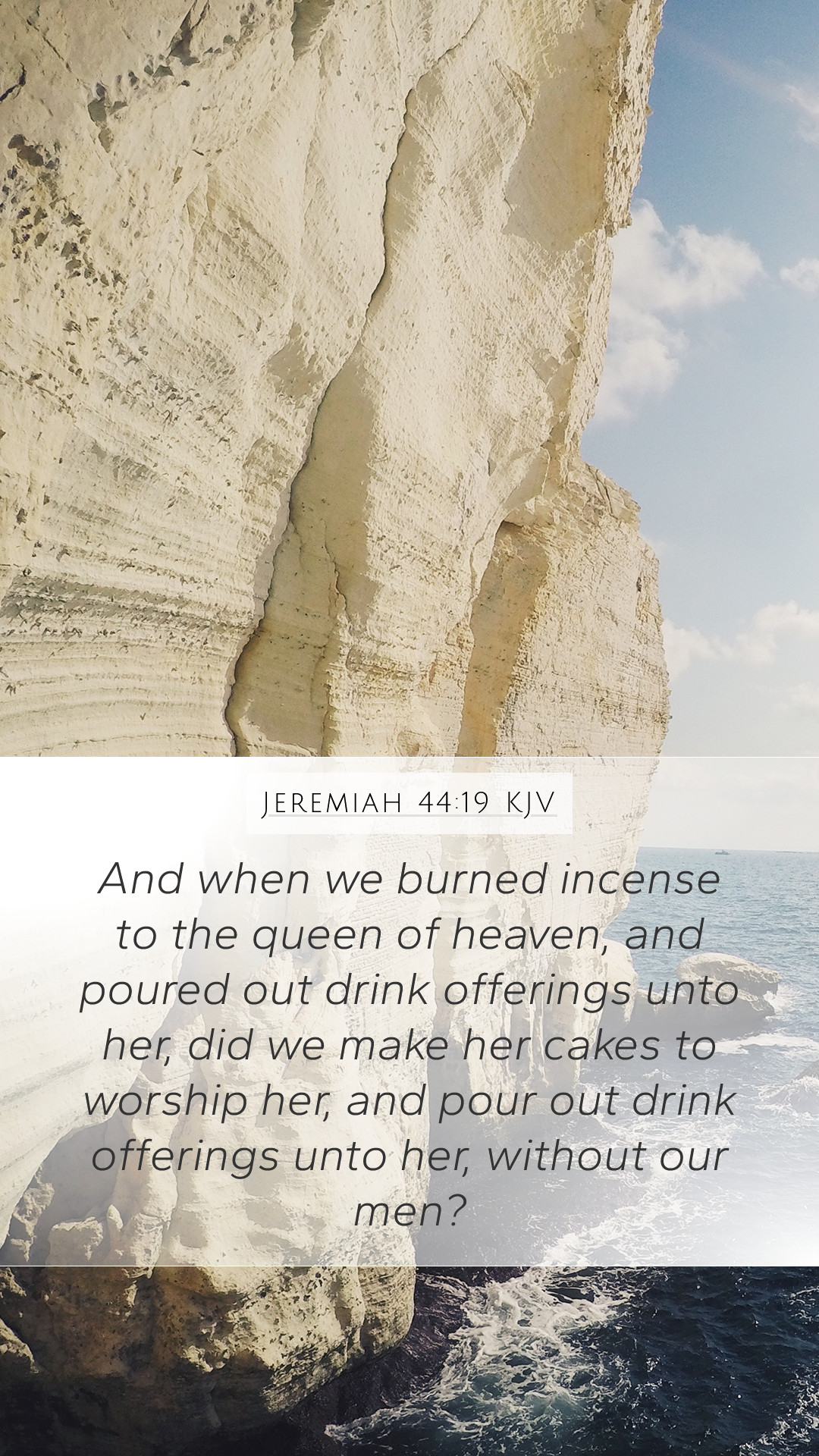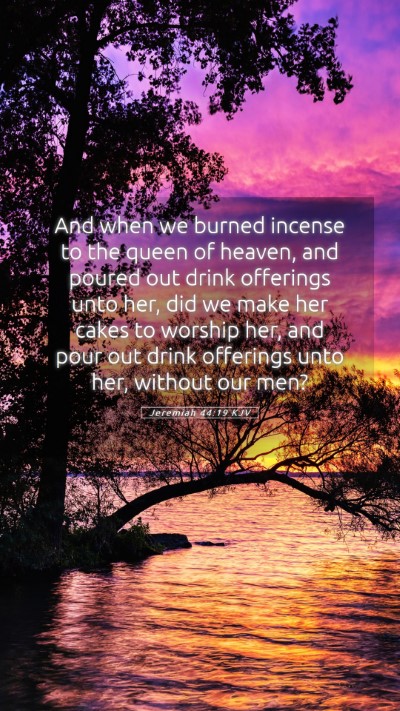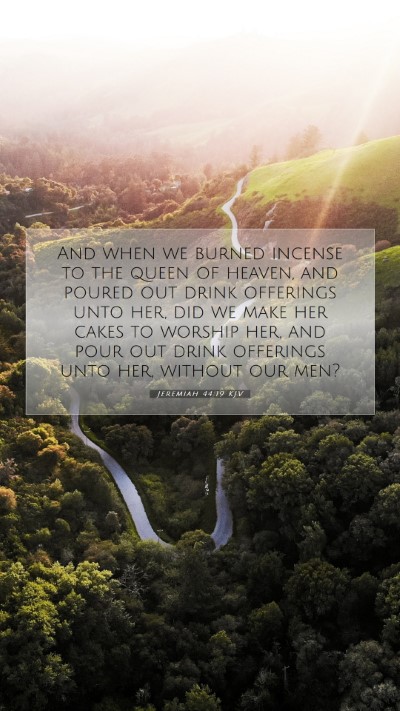Understanding Jeremiah 44:19
Jeremiah 44:19 states:
"And when we burned incense to the queen of heaven, and poured out drink offerings unto her, did we make her cakes to worship her, and pour out drink offerings unto her, without our men?"
Contextual Background
The Book of Jeremiah, attributed to the prophet Jeremiah, addresses the impending judgments of God upon Judah for their disobedience and idolatry. Jeremiah 44 is particularly significant as it highlights how the people of Judah, even in the face of destruction, still cling to their idolatrous practices.
Verse Commentary
- Historical Context: This verse occurs following the destruction of Jerusalem, where the remnant of the people residing in Egypt actively engaged in idol worship, particularly the worship of the queen of heaven—a likely reference to the goddess Asherah or Ishtar, known for fertility and motherhood.
- Idolatry's Endurance: Matthew Henry emphasizes that the people continued in their idolatrous practices despite divine warnings, demonstrating a stubborn refusal to repent. Instead of seeking God for help, they sought reassurance in their false gods.
- Collective Responsibility: Albert Barnes notes that the mention of "without our men" indicates communal responsibility in the worship practices. Men led these actions, which signifies a collective societal trend towards idolatry rather than individual acts.
- Impact of Idolatry: Adam Clarke points out the irony in their worship, questioning whether their ritual practices brought them any real benefit. The people hold fast to rituals that do not produce the anticipated blessings, illustrating the futility of worshipping false gods.
Theological Insights
- Rejection of God: The verse exemplifies a rejection of God's sovereignty in favor of personal desires and cultural practices, which led the people away from true worship. This serves as a warning against mixing faith with worldly influences.
- Covenant Disloyalty: The acts of burning incense and pouring drink offerings are direct violations of the covenant established with God, meaning the populace's worship practices indicate a severe breach in their relationship with the true God.
- Nature of Worship: True worship must arise from a heart dedicated to the God of Israel. The superficiality of their rituals led to a disconnect between their actions and authentic faith.
Modern Applications
For those involved in Bible study groups or participating in online Bible study, the meaning of and reflections on Jeremiah 44:19 encourage believers to evaluate their own forms of worship and the faith practices they uphold. Are these aligned with Scripture or influenced by today's cultural trends?
This verse serves as a catalyst for deeper Bible study insights regarding:
- How to interpret Bible verses in light of historical and cultural context.
- Application of Bible verses to daily life challenges that test our faith and loyalty to God.
- In-depth Bible verse analysis can reveal personal idolatry in various forms, be it in materialism, relationships, or other distractions.
Cross References
- Isaiah 44:9-20: Discusses the folly of idolatry and the inability of idols to save.
- Jeremiah 7:18: References women making cakes for the queen of heaven, linking to the same idolatrous practice.
- Ezekiel 8:14: Describes idolatrous practices in the Temple during Ezekiel's prophetic ministry.
Conclusion
Jeremiah 44:19 profoundly illustrates the consequences of forsaking God's commands for the allure of false worship. It serves as a reminder for believers to engage in Bible study tools and guides that reinforce authentic worship and relationship with God. Understanding Scripture and Biblical exegesis grants deeper insights into the timeless truths found in the Word, enlightening the path for faithful living.


